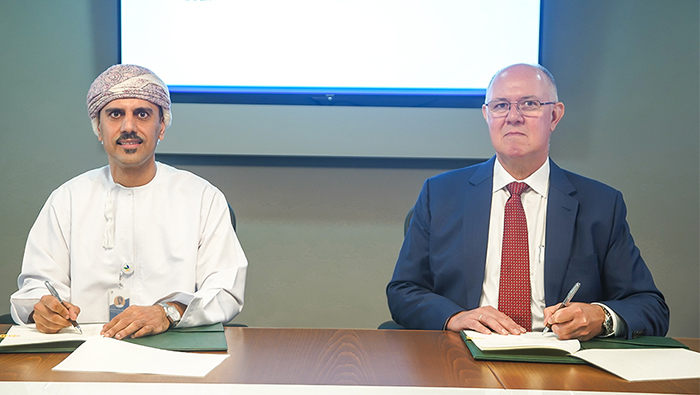The Oman Environmental Services Holding Company (be’ah) has recently signed an agreement with Tialoc and Al Ramooz National to establish the second phase of the industrial waste treatment facility in the Sohar Free Zone. This agreement is part of be’ah’s ongoing efforts to enhance industrial waste management infrastructure in the Sultanate of Oman. The second phase of the project includes the development of an integrated facility for industrial waste treatment, encompassing hazardous waste treatment, physical and chemical processing, and facilities for the treatment of used oils and toxic waste. Storage tanks and advanced infrastructure will also be provided to support operations.
Engineer Abdul Kareem Qasim Al Balushi, the COO of Hazardous Waste Operations, highlighted the importance of this project in improving industrial waste management in Oman. He noted that it represents a significant step within the Sultanate’s strategy to address industrial waste challenges and provide sustainable, integrated solutions. Christoph Engel, CEO of Tialoc Group, expressed his gratitude to be’ah for selecting and placing their trust in Tialoc’s technology. Together with the teams from Tialoc and Al Ramooz, they are fully committed to implementing advanced European technology and best practices to develop the Plant in alignment with the specific needs and emerging trends of the Sohar Zone, and to extend its benefits throughout Oman. This project aims to set a benchmark for integrated industrial waste treatment in the GCC region, harmonizing cutting-edge technology, industrial design aesthetics with eco-friendliness, and contributing significantly to the Sustainable Environment Goals of Oman Vision 2040.
The first phase of the industrial waste treatment facility in Sohar has been operational for several years and includes specialized industrial facilities, a solid waste storage facility, and a laboratory accredited by the Gulf Accreditation Center, making it the only one of its kind in the Sultanate of Oman. The second phase of the project is expected to contribute to the national sustainability goals and bolster the local economy by creating new job opportunities. With the development of this integrated facility for industrial waste treatment, Oman is taking a significant step towards improving its industrial waste management infrastructure and ensuring a sustainable environment for future generations.
The signing of the agreement between be’ah, Tialoc, and Al Ramooz marks a crucial milestone in the Sultanate’s efforts to address industrial waste challenges and provide sustainable solutions. The project is expected to not only enhance industrial waste management in Oman but also set a benchmark for integrated industrial waste treatment in the GCC region. By implementing advanced European technology and best practices, the project aims to eliminate pollution, reduce emissions, and carbon footprints, and contribute significantly to the Sustainable Environment Goals of Oman Vision 2040. This initiative reflects the commitment of all parties involved to environmental sustainability and economic growth in Oman.
In conclusion, the establishment of the second phase of the industrial waste treatment facility in the Sohar Free Zone is a significant development for Oman’s industrial waste management infrastructure. With the support of be’ah, Tialoc, and Al Ramooz, this project is expected to create new job opportunities, contribute to the national sustainability goals, and set a benchmark for integrated industrial waste treatment in the GCC region. By implementing advanced European technology and best practices, the project aims to address industrial waste challenges, reduce pollution, and support the Sustainable Environment Goals of Oman Vision 2040. It is clear that this initiative represents a crucial step towards a sustainable and eco-friendly future for Oman.










